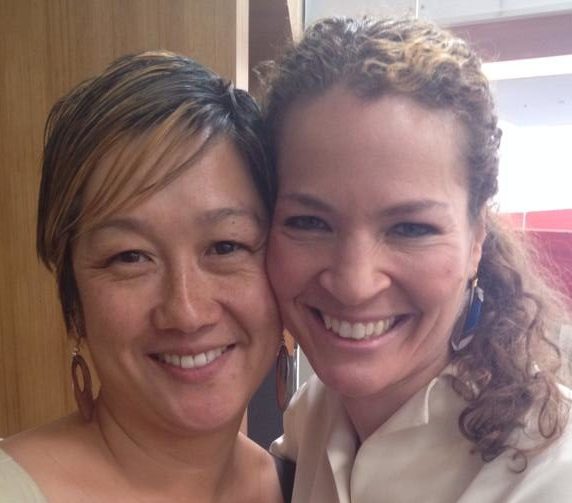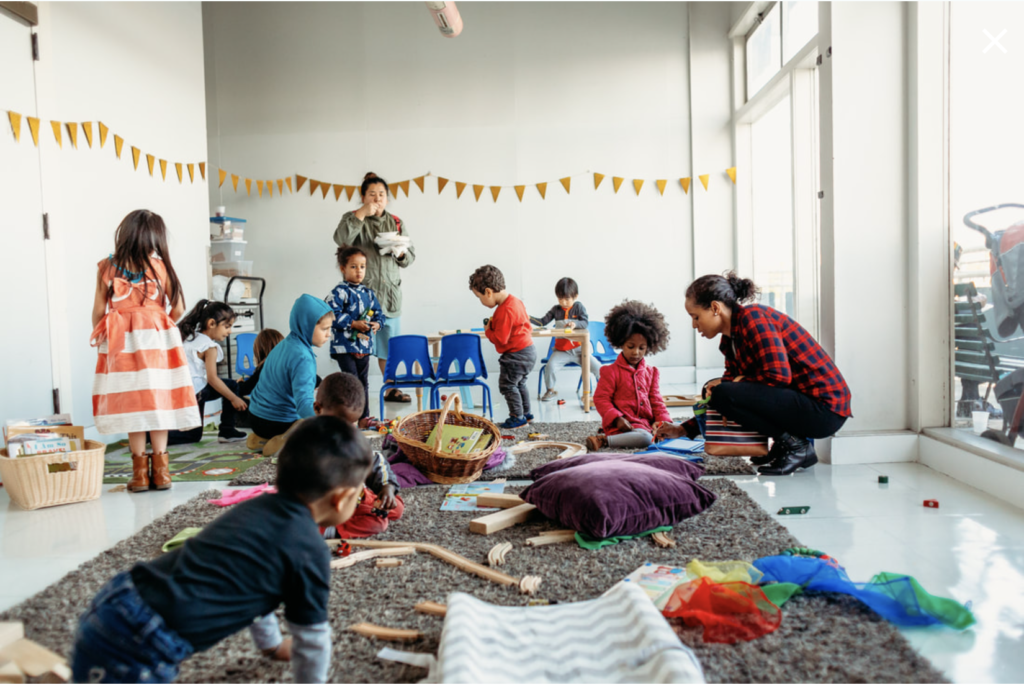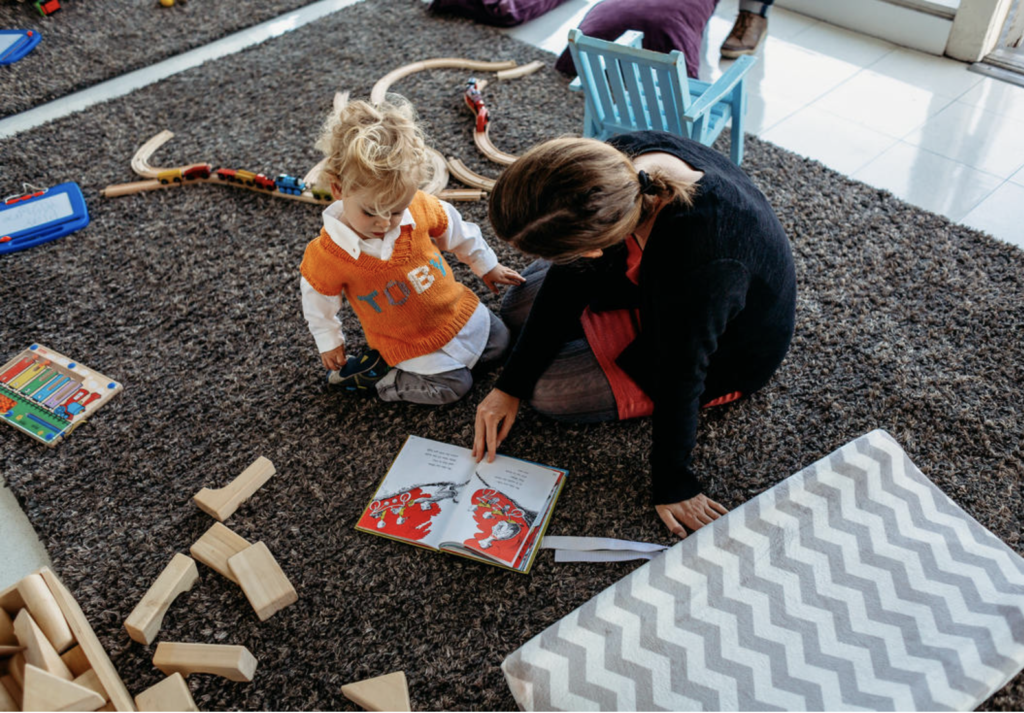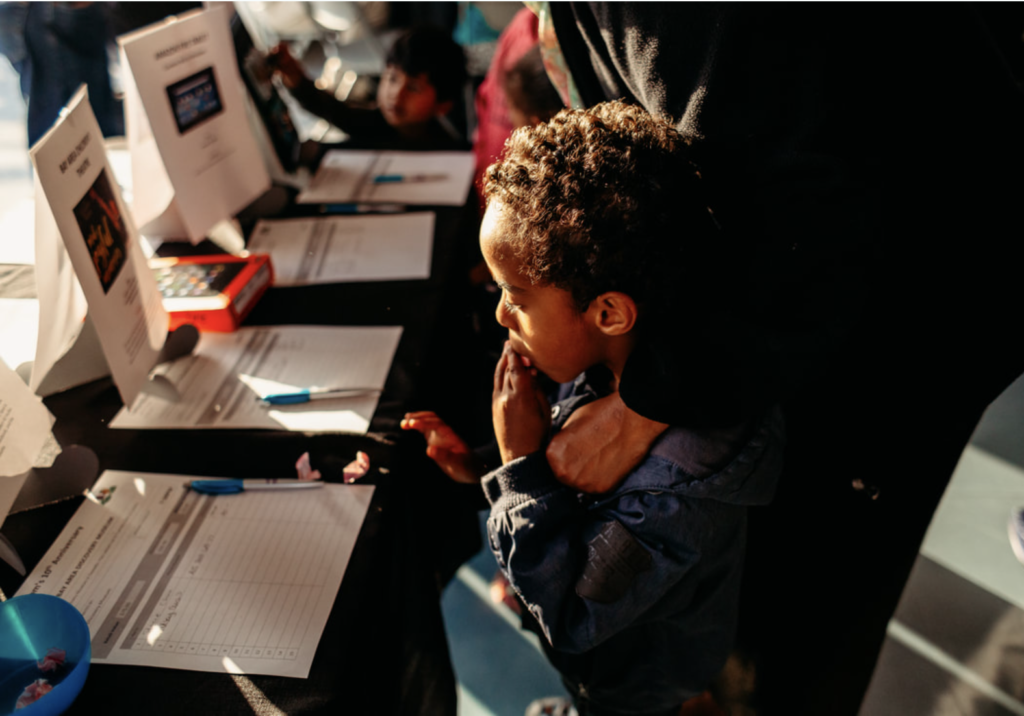I was a senior in high school – 17 at the time – and my counselor told me about Youth Leadership Institute. Tamu Green was the coordinator at the time, and it was my first dab into making sense of the neighborhoods and the communities that we live in.

We talked a lot about racism and sexism, alcohol and advertisements. I remember we walked around my neighborhood in San Francisco’s Bayview-Hunters Point. The majority of the businesses there were churches and liquor stores. Then we walked in Pacific Heights. They had a community benefit neighborhood: cafes, clothing stores, hardware stores, various essential services. It caused us to reflect, and to see things more objectively. It gave me an opportunity to do some analysis and to think about what a healthy community looks like.
So much of our work was around learning to articulate the names we’d been called and how that made us feel. At one of our monthly gatherings, we played a game with this flashlight. We would flash our face and say the things that people had said to us, but we didn’t know how to manage our emotions at that time. We’d start laughing and goofing off, but these were very serious matters. It signaled to me that emotional literacy and awareness was something that we all had to grow. We were all inundated with racism and discrimination, but didn’t know how to process it, articulate it or address it.
These were big questions for me as a teenager. yli used to feed us and I remember after one of our convenings, we had a bunch of bagels left over. I and two other youth took all the bagels and walked down Powell street to pass them out to the homeless folks. It felt so natural and so right to do. As an immigrant, as a person who grew up in a historically under-resourced neighborhood, a sense of belonging was really important. I always felt like an outsider. How could I make sure my voice mattered? What I learned at yli was that, if I wanted things to change, I just had to start doing it. I had to show up at the table – sometimes I had to establish my own seat – to do the work of articulating my needs.
At that time, I wasn’t even sure if I was going to go to college. Tamu was this incredible advocate for me. She really believed in me and helped me articulate the skills I was acquiring at yli. As a senior in high school, I got the chance to work at Benjamin Franklin Middle School as a tutor and I fell in love with the kids. So I decided to apply to college to be a teacher. I spent several years working for the Upward Bound program and did a lot of organizing on campus. I’ve definitely taken my experiences at yli into my political and community organizing work, and have built my career around education in policy, social justice, and community.

I started Lotus Bloom Family Resource Center about 15 years ago. My children are half Chinese American and half African American, and I wanted to cultivate a community that would honor and celebrate my future family. Oakland is a desert for family and early childhood support. I wanted to make a positive contribution to my community, so I started a Saturday morning art and music program where families can come with their children. We sang songs, we’d do arts, we’d help families get library cards.
I started getting involved in the neighborhood and going to neighborhood meetings, hearing what other folks had to say, and sharing my perspective. Collaborations began to form, and Lotus Bloom became a natural gathering place. We wanted people to feel relaxed when they come, to feel like they’re being represented. That they can come play and meet other people in this very informal, nurturing environment.
As we came together as a community, our programs evolved. For example, we needed tips on putting our kids to sleep, so we created a support group around that. From there, I started to see familiar faces in the neighborhood: at the grocery store, at a doctor’s appointment, at the elementary school. Providing various touch points for people to get to know each other creates possibilities – ideas for play dates, for camping, for programs. Fostering those relationships – giving people a sense of belonging – seeds creativity and a sense of possibility. We can create whatever it is that we need.

Our parent child socialization group has now evolved into this family resource center with three locations across Oakland. The work is about bringing communities together, and allowing the families to help prioritize and form the work that we’re doing. We have socialization groups, we have case management services, we have community events, we’re doing diaper distributions. We had an emergency fund that we established during the pandemic to put money in the pockets of parents so they could decide what is important and needed during that time. It’s a community empowerment model. It provides people with some resources so that they can start imagining what they need for their families and neighborhoods.
Many people have told me that I’m a community organizer. I have a deep belief that every person has the ability to organize themselves. But it has to be a developmental path. In the organizing world, I saw a lot of judgment about who was “down” enough, about who was going to all the marches and actions. There’s room for that. There also needs to be room for people to show up just for themselves and for their children. That might be their revolutionary act today: that they showed up, that they were present and played and laughed, that they were attuned to each other. For other folks, it might be marching and pushing for a new budget line item so that we have programs and services. For me, it’s about creating a safe container where people can enter wherever they are on that spectrum – if you’re just learning how to undo trauma in your life so that you can actually be present for your child, that’s pretty revolutionary.

My time at yli was an opportunity to have interaction and networks and exposure – and I think that it was so important. I saw Tamu last month and we hung out. We’ve done work together. She’s done strategic planning for my organization and helped us write curriculum. We’ve been a resource for each other for the last 28 years. I remember running into Maureen, yli’s founder, at a national conference a few years ago. I didn’t know anybody else there, but reconnecting with Maureen gave me that sense of familiarity, that sense of belonging. That’s what I’m trying to cultivate for the families at Lotus Bloom – a safe space for people to get to know each other, to build relationships.
